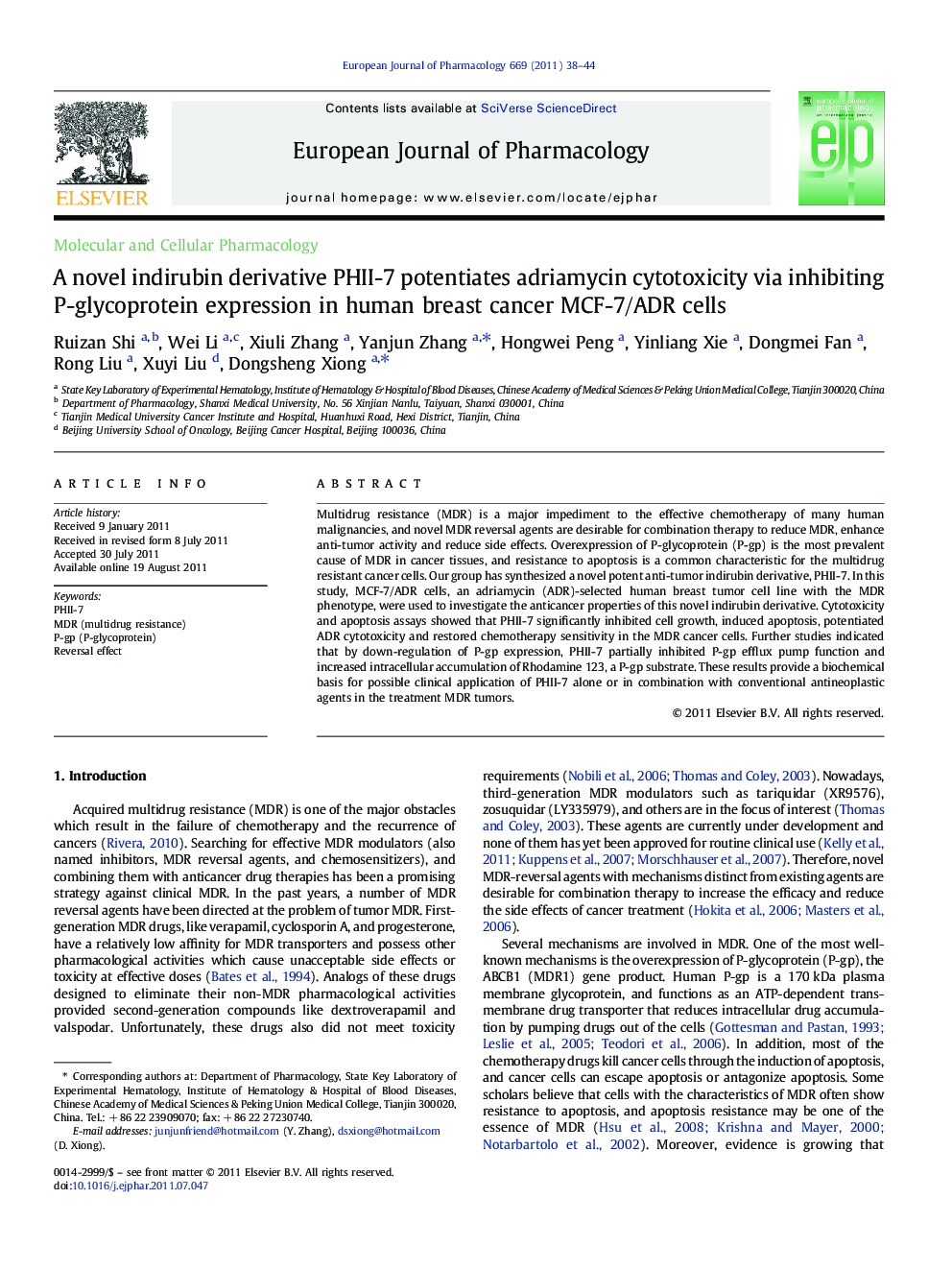| Article ID | Journal | Published Year | Pages | File Type |
|---|---|---|---|---|
| 5830138 | European Journal of Pharmacology | 2011 | 7 Pages |
Abstract
Multidrug resistance (MDR) is a major impediment to the effective chemotherapy of many human malignancies, and novel MDR reversal agents are desirable for combination therapy to reduce MDR, enhance anti-tumor activity and reduce side effects. Overexpression of P-glycoprotein (P-gp) is the most prevalent cause of MDR in cancer tissues, and resistance to apoptosis is a common characteristic for the multidrug resistant cancer cells. Our group has synthesized a novel potent anti-tumor indirubin derivative, PHII-7. In this study, MCF-7/ADR cells, an adriamycin (ADR)-selected human breast tumor cell line with the MDR phenotype, were used to investigate the anticancer properties of this novel indirubin derivative. Cytotoxicity and apoptosis assays showed that PHII-7 significantly inhibited cell growth, induced apoptosis, potentiated ADR cytotoxicity and restored chemotherapy sensitivity in the MDR cancer cells. Further studies indicated that by down-regulation of P-gp expression, PHII-7 partially inhibited P-gp efflux pump function and increased intracellular accumulation of Rhodamine 123, a P-gp substrate. These results provide a biochemical basis for possible clinical application of PHII-7 alone or in combination with conventional antineoplastic agents in the treatment MDR tumors.
Keywords
Related Topics
Life Sciences
Neuroscience
Cellular and Molecular Neuroscience
Authors
Ruizan Shi, Wei Li, Xiuli Zhang, Yanjun Zhang, Hongwei Peng, Yinliang Xie, Dongmei Fan, Rong Liu, Xuyi Liu, Dongsheng Xiong,
